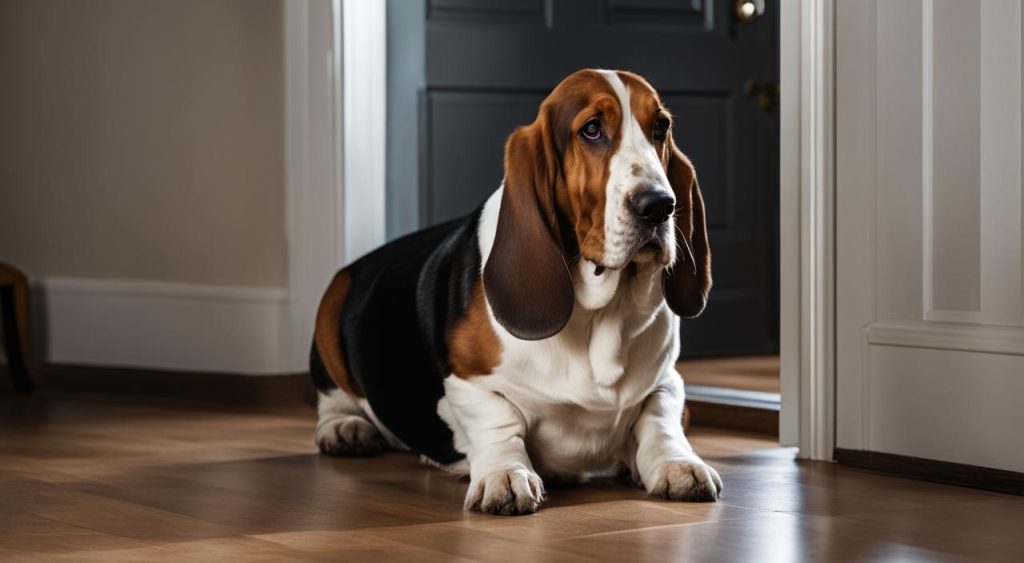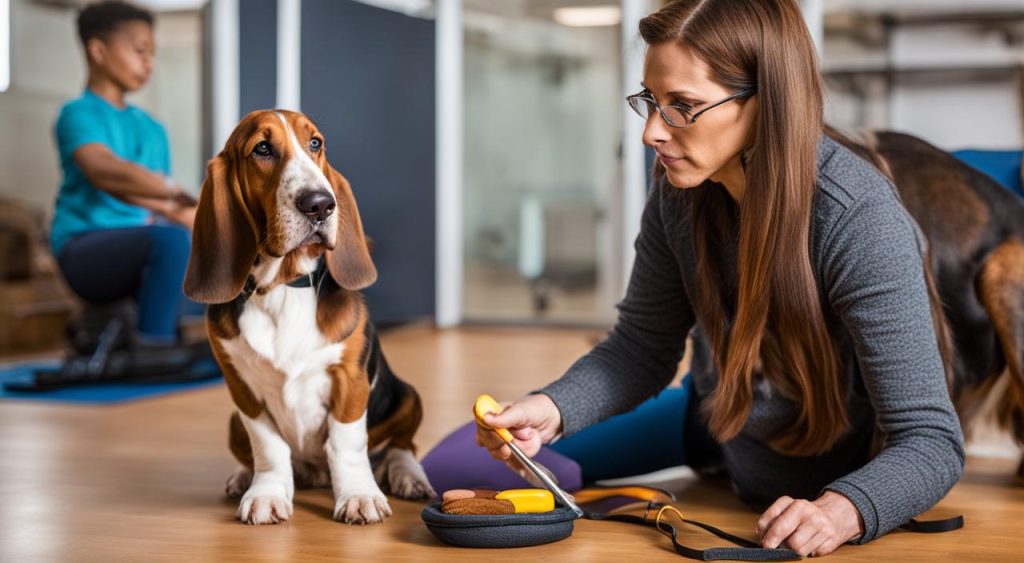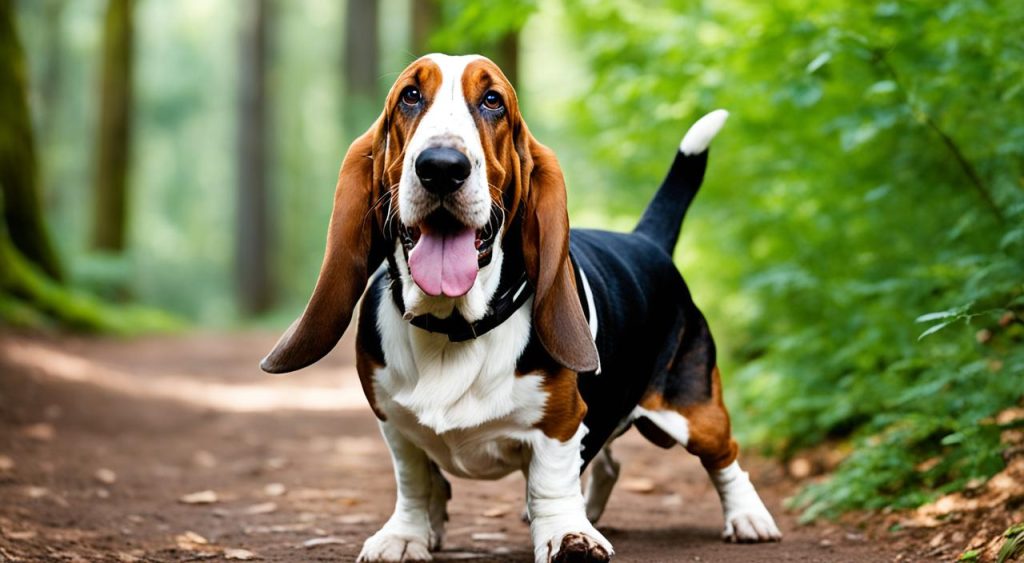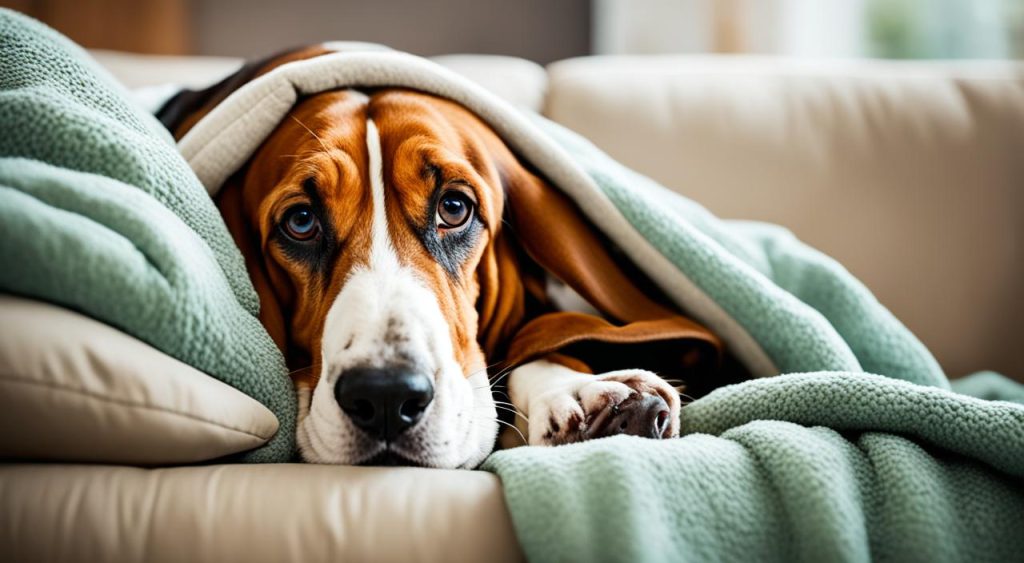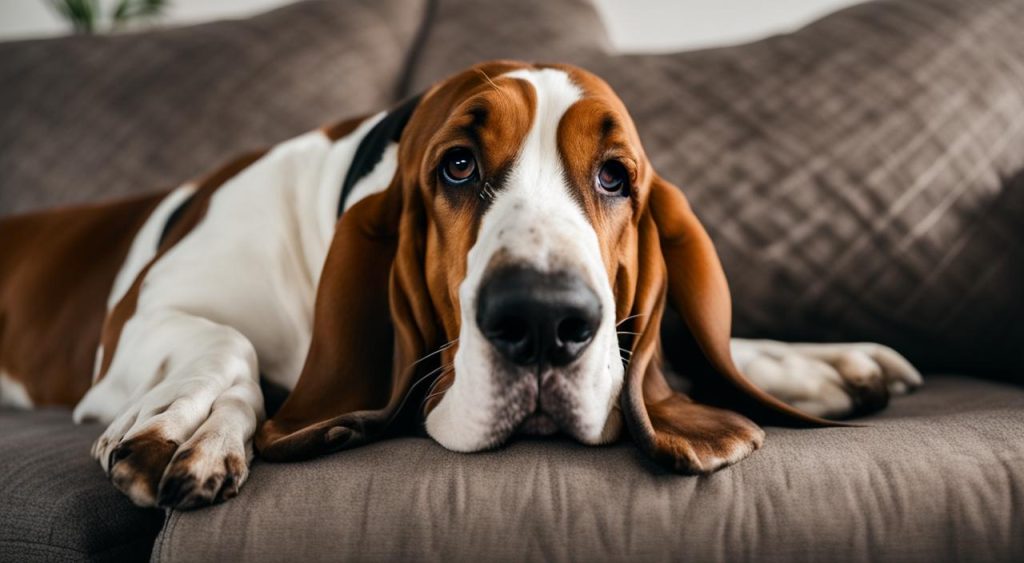Are you wondering if Basset Hounds can be left alone? If so, you’re in the right place. Basset Hounds are known for their lovable droopy ears and laid-back nature, but can they handle being left alone for extended periods?
The good news is that Basset Hounds are generally low maintenance and can be left alone. They have a calm and easygoing temperament that makes them content when left to their own devices. They enjoy napping and lounging around, so leaving them alone for a few hours shouldn’t be a problem.
However, it’s important to keep in mind that every dog is different, and some Basset Hounds may experience separation anxiety. This can manifest in behaviors such as excessive barking, destructive chewing, or soiling in the house. If your Basset Hound shows signs of distress when left alone, it’s essential to address their separation anxiety and provide them with the support they need.
Additionally, while Basset Hounds are generally independent, they still require daily exercise. This breed has a tendency to gain weight easily, which can lead to health issues. Regular exercise helps to maintain their physical and mental well-being, ensuring they have a positive alone time experience.
Key Takeaways:
- Basset Hounds can be left alone for extended periods due to their low-energy and independent nature.
- Some Basset Hounds may experience separation anxiety and require additional support and training.
- Regular exercise is essential for a Basset Hound’s overall health and well-being.
- Monitor their weight to prevent obesity-related health issues.
- Provide a safe and comfortable environment when leaving your Basset Hound alone.
Understanding Basset Hounds
Basset Hounds are known for their friendly and laid-back temperament. They are affectionate and patient with children, making them great family dogs. However, they can be stubborn and a bit challenging to train. It’s important to be patient and consistent when training your Basset Hound.
One important aspect of understanding Basset Hounds is recognizing their need for companionship. Basset Hounds are pack animals and thrive on the company of their humans and other dogs. They form strong bonds with their owners and enjoy regular interaction and socialization. Leaving them alone for extended periods can lead to loneliness and even separation anxiety.
“Basset Hounds require regular interaction with their owners and may become destructive if bored.”
When left alone for long periods, Basset Hounds can become bored, which may result in destructive behavior such as chewing furniture or excessive barking. They crave companionship and prefer to be a part of their human’s daily activities. If you work long hours or have a busy schedule that keeps you away from home for extended periods, a Basset Hound might not be the best choice for you.
It’s essential to consider your lifestyle and availability before bringing a Basset Hound into your home. If you’re away for long hours, it’s recommended to have a plan in place to ensure your Basset Hound’s well-being and prevent boredom or separation anxiety. This could include doggy daycare, hiring a dog walker, or having a trusted family member or friend come to spend time with your furry friend.
In conclusion, Basset Hounds have a friendly and laid-back temperament, but they thrive on companionship. They require regular interaction with their owners and can become destructive if left alone for long periods. If you’re considering getting a Basset Hound, make sure you can provide the attention and companionship they need to live a happy and fulfilling life.
Health and Age Considerations
When it comes to leaving your Basset Hound alone, understanding the specific needs of their age and health is crucial. Puppies, with their higher energy levels, require more attention and care. They may chew on things and engage in more mischief when left alone. It is important to puppy-proof your home and provide them with plenty of chew toys and mental stimulation to keep them occupied.
As Basset Hounds grow into adults, they become more independent and can handle being left alone for longer periods compared to puppies. However, it’s important to keep in mind that Basset Hounds are prone to certain health issues that can affect their ability to be left alone. Obesity, for example, is a common problem in this breed due to their love for food. It’s crucial to maintain a healthy weight by providing them with a balanced diet and regular exercise.
“Adult Basset Hounds can handle being left alone for longer periods, but it’s important to be mindful of their individual health needs. Regular vet check-ups and addressing any health issues promptly are essential to ensure their well-being.”
To maintain your Basset Hound’s health and well-being, it’s important to monitor their weight, provide appropriate exercise, and address any health concerns promptly. Regular vet check-ups are crucial to catch any potential health issues early on. By taking these proactive measures, you can ensure your Basset Hound’s ability to be left alone without compromising their overall health and happiness.
Training for Independence
Crate training is a valuable tool for teaching your Basset Hound to be independent and providing them with a safe space when they are left alone. The crate creates a den-like environment that mimics their natural instincts as den animals, making them feel secure and comfortable.
When introducing crate training, it is important to make it a positive and rewarding experience for your Basset Hound. Gradually increase the time they spend in the crate, starting with short periods and gradually extending the duration. Use treats and praise to reinforce positive behavior when they enter and stay in the crate.
“Crate training can help teach a Basset Hound to be independent and provide a safe space for them when left alone.”
Basic commands such as “sit” and “stay” are essential for building confidence and independence in your Basset Hound. Consistent training sessions using positive reinforcement techniques will help your Basset Hound understand and follow these commands.
By teaching your Basset Hound basic commands, you are empowering them with the skills to navigate various situations independently. These commands also serve as a way to redirect their attention and prevent destructive behavior when they are left alone.
Dealing with separation anxiety in Basset Hounds is crucial to ensuring their well-being when left alone. It involves identifying the symptoms, such as excessive barking, destructive chewing, or house soiling, and implementing strategies to alleviate their anxiety.
“Dealing with separation anxiety may require identifying the symptoms, preventing destructive behavior, and considering medication in severe cases.”
Providing your Basset Hound with mental and physical stimulation before leaving them alone can help alleviate separation anxiety. This can include engaging them in interactive toys or puzzles, going for a brisk walk, or incorporating training sessions that challenge their minds.
In severe cases of separation anxiety, medication prescribed by a veterinarian may be necessary to help your Basset Hound manage their anxiety. This should always be pursued in consultation with a professional to ensure the well-being and safety of your pet.
With consistent training, a safe crate environment, and proper management of separation anxiety, you can help your Basset Hound become more independent and comfortable when left alone.
Conclusion
When it comes to Basset Hounds and their alone time, it’s crucial to consider their individual needs, age, and health. While Basset Hounds can be left alone, it is important to create a supportive environment that helps prevent destructive behavior and manage separation anxiety.
One way to ensure your Basset Hound’s comfort is by providing safe spaces in your home. This can be achieved through crate training, giving them a designated area where they feel secure and relaxed when left alone.
Additionally, providing mental and physical stimulation is essential. Basset Hounds are intelligent animals and need activities to keep them engaged. Interactive toys, puzzles, and regular exercise can help keep them mentally stimulated and prevent boredom.
Socialization is also key, especially from a young age. Exposing your Basset Hound to different people, environments, and experiences can help them develop confidence and become more independent. Consider having another dog for companionship, as Basset Hounds are pack animals and enjoy the company of others.
Remember, if you’re a Basset Hound owner who works, managing their alone time requires careful planning and consideration. Building a routine and gradually increasing the duration of alone time can help them adjust. Patience, consistency, and understanding their individual needs will go a long way in ensuring their comfort, happiness, and overall well-being.

